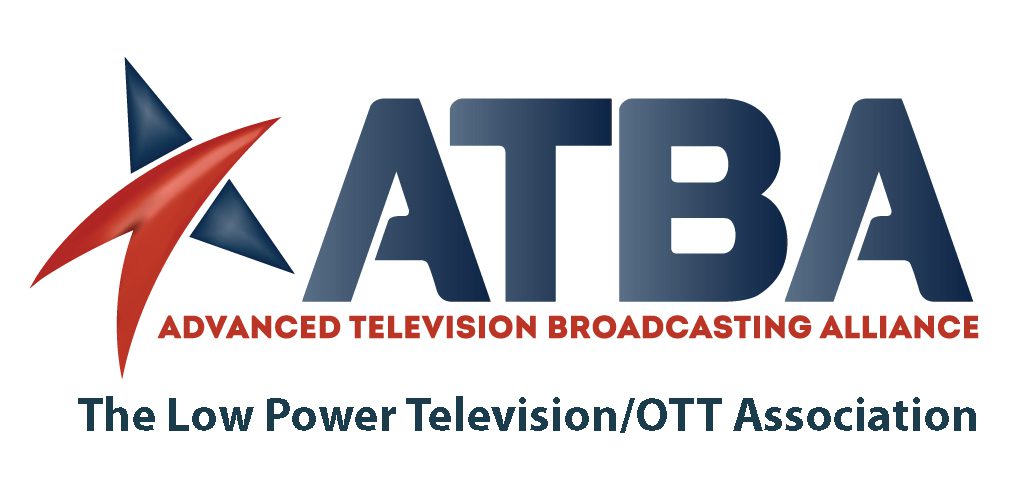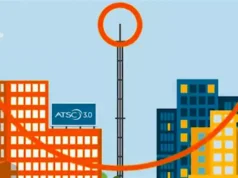WASHINGTON DC – July 24, 2014/ Louis Libin, executive director of the Advanced Television Broadcasting Alliance (ATBA) testified before the House Communications and Technology Subcommittee on behalf of Low Power Television (LPTV) Broadcasters and Viewers. Today’s hearing on the proposed LPTV and Translator Preservation Act of 2014 is a significant step in the process to inform the FCC and the Congress that LPTV and Translators are important to the communications infrastructure of our country.
LPTV service was created in the early 1980’s to enhance diversity by allowing more unique “voices” to provide free, over-the-air television service. More than 5,000 LPTV and Translator stations provide television service to tens of millions of Americans. In many places, these stations are the only broadcast television service available, and in many other cases, they provide communities their only access to the affiliates of major broadcast networks.
“A third or more of LPTV and Translator stations are now at risk of being shut down by the FCC as it conducts the incentive auction,” testified Libin. “The FCC could eliminate LPTV and translator stations just for the sake of running the auction faster or with less precise calculations, or for the sake of completing the auction in less than half of the ten years Congress authorized. And that is what the FCC is doing. It has adopted rules that run the auction at a breakneck speed with, literally, no consideration at all of the impact on citizens served by LPTV and translator services. The rules reallocate LPTV spectrum to wireless carriers without assigning any value at all to the LPTV and translator services that would be eliminated.”
The Advanced Television Broadcasting Alliance is an industry organization comprised of low power television broadcasters, translators, full power television broadcasters and allied industry organizations and companies. The goal of the Alliance is to preserve and promote the efficient and effective use of all television broadcast spectrum. Visit www.BroadcastingAlliance.org for more information and to join.
###
View the hearing here. View
Testimony of Louis Libin
Executive Director, Advanced Television Broadcasting Alliance
Before
House Committee on Energy and Commerce
Subcommittee on Communications and Technology
Legislative Hearing on the Anti-Spoofing Act, the LPTV and Translator Act,
and the E-LABEL Act
July 24, 2014
SUMMARY OF MAJOR POINTS
• LPTV service was created to enhance diversity by allowing more unique “voices” to provide free, over-the-air television service. More than 5,000 LPTV and translator provide television service to tens of millions of Americans. In many places, these stations are the only broadcast television service available, and in many other cases, they provide communities their only access to the affiliates of major broadcast networks. LPTV and translator services are “secondary” to full power broadcast services: they may not cause interference to full power stations and must accept interference from full power stations.
• A third or more of LPTV and translator stations are now at risk of being shut down by the FCC because of the manner in which it has decided to conduct the broadcast incentive auction.
• The 2012 Spectrum Act expressed a fundamental principle about spectrum use: that spectrum allocations should reflect market demand. But the FCC’s approach to the auction does not reflect that core principle. The FCC has is giving no consideration at all to the value of the service provide by LPTV and translator services. Because the FCC does not have to share proceeds of the auction with LPTV or translator stations, those stations are simply “free” spectrum in the eyes of the FCC. From the perspective of the auction itself, there is no cost to eliminating LPTV and translator service.
• The FCC could cancel hundreds or even thousands of LPTV and translator licenses even if doing so would not generate a single dollar in additional revenue for the auction. The FCC could eliminate LPTV and translator stations just for the sake of running the auction faster or with less precise calculations, or for the sake of completing the auction in less than half of the ten years Congress authorized.
• Far from a market mechanism, the FCC approach is a pointless, tragic destruction of value, jobs, diversity, localism and rural service. The FCC could shut down thousands of LPTV and translator stations to give wireless carriers spectrum in rural areas that they do not need and likely will not use.
• While more work is needed, we greatly appreciate Chairman Emeritus Barton’s work on the LPTV and Translator Preservation Act, which is an important first step.
Chairman Walden, Ranking Member Eshoo, and distinguished members of the Subcommittee, my name is Louis Libin. I am the Executive Director of the Advanced Television Broadcasting Alliance, which is comprised of hundreds of low-power television (“LPTV”) broadcasters, owners and operators of translators, and allied industry organizations and companies.
Thank you very much for the opportunity to provide testimony regarding the impact of the planned broadcast incentive auctions on LPTV stations, translators and boosters. In particular, I appreciate the efforts of Chairman Emeritus Barton to develop a bill, the LPTV and Translator Preservation Act, which will require the FCC to consider the great benefits of LPTV and translator stations, rather than indiscriminately eliminating their licenses without any consideration of the value these stations provide to under-served communities and population segments.
About LPTV and Translator Service
LPTV service was created to enhance diversity by allowing more unique “voices” to provide free, over-the-air television service. LPTV stations operate with lower power and service smaller areas than full power stations. LPTV stations address the needs of minorities, women, ethnic communities, the elderly, children and other underserved populations. They also broadcast in rural areas where full power stations sometimes are not commercially viable.
Television translators are technically just like LPTV stations. But instead of originating programming, they extend the reach of broadcast stations into rural and geographically isolated areas that are not adequately covered by a full power signal.
More than 2,000 LPTV stations and more than 3,000 translators provide television service to tens of millions of Americans. In many places, these stations are the only broadcast television service available, and in many other cases, they provide communities their only access to the affiliates of major broadcast networks. Many translators were built and are operated by local communities to ensure that those communities have access to broadcast television.
LPTV and translator services are “secondary” to full power broadcast services: they may not cause interference to full power stations and must accept interference from full power stations.
Impact of FCC Incentive Auction on LPTV and Translator Stations
A third or more of LPTV and translator stations are now at risk of being shut down by the FCC as it conducts the incentive auction. Many more may shut down because they cannot afford the cost of transitioning to a new channel. Because of the way translators operate, the loss of a license for one translator could mean 10, 20 or more other translators cannot be operated economically. So the full impact is likely to be far worse than the simple number of translators eliminated.
As you know, in 2012 Congress authorized the FCC to conduct an “incentive auction” of broadcast spectrum. Willing broadcast stations could relinquish their licenses in exchange for a share of the proceeds of an auction of new wireless broadband licenses. The 2012 Spectrum Act expressed a fundamental principle about spectrum use: that spectrum allocations should reflect market demand.
In June of this year, the FCC released its first significant order describing how it intends to implement the broadcast incentive auctions. Unfortunately, that order does not reflect the core principle of allocations according to market demand and is driven by reasons not fully attributable to the intent of Congress. The FCC has adopted rules that give no consideration at all to the value of the service provided by LPTV and translator services. Because the FCC does not have to share proceeds of the auction with LPTV or translator stations, those stations are simply “free” spectrum in the eyes of the FCC. From the perspective of the auction itself, there is no cost to eliminating LPTV and translator service.
Under the FCC’s auction rules the FCC could cancel hundreds or even thousands of LPTV and translator licenses even if doing so would not generate a single dollar in additional revenue for the auction. The FCC could eliminate LPTV and translator stations just for the sake of running the auction faster or with less precise calculations, or for the sake of completing the auction in less than half of the ten years Congress authorized.
And that is what the FCC is doing. It has adopted rules that run the auction at a breakneck speed with, literally, no consideration at all of the impact on citizens served by LPTV and translator services. The rules reallocate LPTV spectrum to wireless carriers without assigning any value at all to the LPTV and translator services that would be eliminated.
This is not a market mechanism. It is a pointless, tragic destruction of value, jobs, diversity, localism and rural service. The FCC could shut down thousands of LPTV and translator stations to give wireless carriers spectrum in rural areas that they do not need and likely will not use.
The FCC’s incentive auction order damages LPTV and translator services in other ways. For example, although those services are secondary to full power broadcast stations, the FCC’s order treats low power stations as secondary even to unlicensed services. Congress did not authorize the FCC to elevate unlicensed services over licensed LPTV and translator services.
While the economic costs of the FCC’s refusal even to consider preservation of LPTV and translator service are borne most directly by the licensees, the public served by these critical facilities is the biggest loser. The TV stations that air local high school football games, provide ethnic and foreign language programming, provide church services and weather alerts, and bring network programming into rural areas that are already underserved – will all be gone without any consideration of the value lost to millions of Americans.
Conclusion
While LPTV and translator operators and their audiences would like to see much more done, the LPTV and Translator Preservation Act is a step in the right direction.
We are very thankful for the support Chairman Emeritus Barton has given to Americans who rely on LPTV and translator service. We appreciate his support for these hometown businesses that serve their communities with local programming, ethnic programming, local church services, weather alerts, and programming for linguistically isolated audiences, and that extend the reach of full power, network affiliated stations into unserved rural areas.
Again, thank you for the opportunity to testify at today’s hearing and for your work on this important issue for Americans who rely on LPTV and translator service.
JOIN The ALLIANCE










